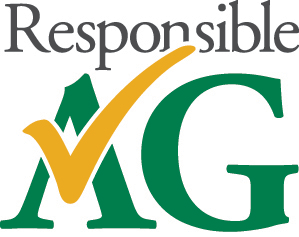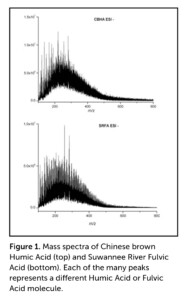
Responsible Ag is the only program in the nation that provides a voluntary comprehensive assessment of a fertilizer manufacturer’s compliance with federal regulations. Certification requires that a facility meet stringent regulatory-based criteria, implement industry-leading safety and security measures, and demonstrate that facility safety is the company’s highest priority.
The Responsible Ag certifying organization was founded in 2014 to promote the public welfare by assisting agribusinesses to comply with federal environmental, health, safety, and security rules regarding the safe handling and storage of fertilizer products. Participation in the program assures community members, employees, and emergency responders that participating agribusinesses are acting responsibly.
BHN President and CEO Lyndon Smith said, “Achieving Responsible Ag certification demonstrates to our community and our customers that we are a very safe and responsible fertilizer manufacturer. We take great pride in our production processes, and we take every step available to demonstrate that our products are consistent, of high quality, and are safely and responsibly produced.” Frank Pidgeon, BHN Senior Director of EHSS/Quality Control, said, “The Responsible Ag audit was very thorough and was an excellent mechanism for ensuring that we were in full compliance with all federal fertilizer manufacturing safety and handling regulatory requirements. It’s great that we can offer this third-party certification to our employees and to our community as objective evidence that safety is BHN’s highest priority and that we put our safety commitment into daily action.”
More information about Responsible Ag and its certification process, including a list of agribusinesses that have been successfully certified, is available at www.responsibleag.org.
# # #
About Bio Huma Netics, Inc.
Founded in 1973, Bio Huma Netics, Inc., (BHN) is a three-generation-family/employee-owned company that is a global leader in providing sustainable solutions to the world’s environmental challenges for agriculture (HUMA GRO®, MESA VERDE HUMATES®); horticulture, turf & ornamentals (HUMA GRO® TURF); and soil & wastewater remediation (PROBIOTIC SOLUTIONS®) through its proprietary Micro Carbon Technology® and its continuously improving and ever expanding product lines. Learn more at www.bhn.us.
Related Posts

What Differentiates Humic and Fulvic Acids?
By Richard Lamar, PhDDirector of Humic ResearchBio Huma Netics, Inc. For centuries, humic acids (HA) were thought to be composed of much larger molecules than those found in fulvic acids (FA). However, the application of Fourier-transform ion cyclotron resonance mass spectrometry (FT-ICR MS), which separates molecules on the basis of molecular weight, demonstrates that the

Fred Nichols’ Insights on Microbiome and the Biologicals Boom
Recently, CropLife interviewed several industry experts, including Huma’s Chief Marketing and Chief Sales Officer, Fred Nichols, to discuss the rapid growth of biological products in agriculture, including biostimulants, biopesticides, and biofertilizers. Fred answered important questions about the microbiome’s role in soil health, industry’s understanding of it, and the new innovations being developed for sustainable farming.

Bio Huma Netics Achieves Responsible Ag Certification
Bio Huma Netics, Inc. (BHN), the maker of Huma Gro® and Fertilgold® Organics crop nutrition and protection products, has achieved Responsible Ag certification for its fertilizer manufacturing facilities. Responsible Ag is the only program in the nation that provides a voluntary comprehensive assessment of a fertilizer manufacturer’s compliance with federal regulations. Certification requires that a

